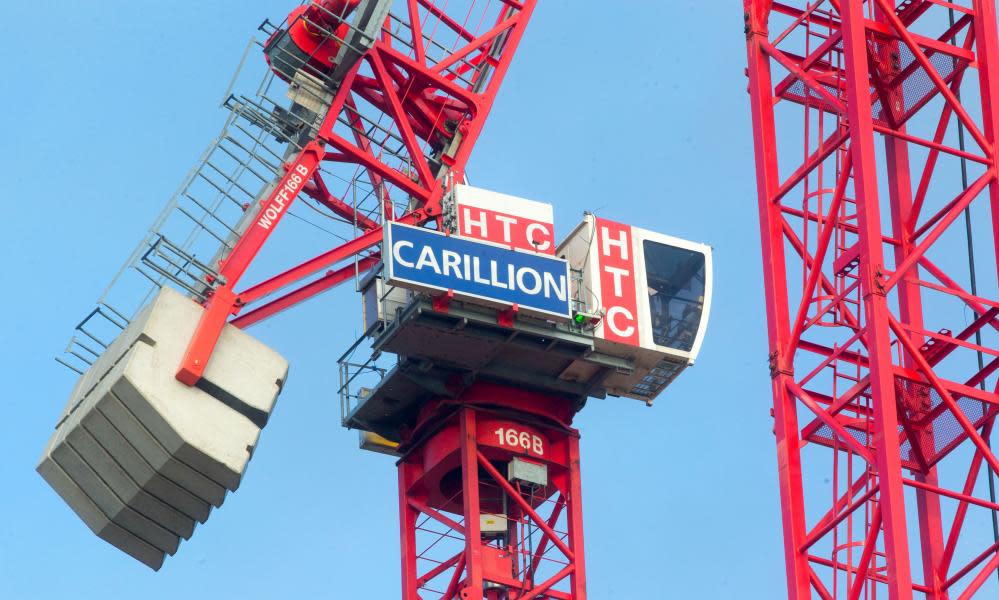Carillion may have gone bust, but outsourcing is a powerful public good

What has outsourcing ever done for me?
In a parody of the scene from Monty Python’s Life of Brian, that is what critics and commentators are asking about the collapse of Carillion – formerly one of the UK’s biggest companies.
The answer – the true answer – is that we should always be grateful that private companies have delivered better public service for less money. And therefore have done three important things for us all.
First and foremost, it has delivered vital public services – and delivered them well. Notice that in the fallout over the collapse of Carillion, few questioned the quality of what it has been doing in the public realm. From the NHS to HS2 the company’s record of delivery is positive.
NHS
•Manages facilities including 200 operating theatres and 11,800 beds
•Makes more than 18,500 patient meals per day
•Helpdesks manage 1.5m calls per year
•Engineering teams carry out maintenance work
Transport
•Building 'smart motorways' – which ease congestion by monitoring traffic and adjusting lanes or speed limits – for the Highways Agency
•Major contractor on £56bn HS2 high-speed rail project
•Upgrades track and power lines for Network Rail
•Major contractor on London’s Crossrail project
•Roadbuilding and bridges
Defence
•Manages infrastructure and 50,000 homes for Ministry of Defence
Education
•Designed and built 150 schools
•Services such as catering and cleaning at 875 schools
Prisons
•Maintenance and repairs at about half of UK prisons
Libraries
•Manages several public libraries in England
Energy
•Building substations, overhead cables and other works for National Grid
Second, the company has taken risk out of the public sector and absorbed it themselves. It is one of the oldest criticisms of public private partnerships that the transfer of risks is never achieved properly – profits, we are told sanctimoniously, are privatised, while risk remains nationalised. In the case of Carillion we can see that is utterly and demonstrably false. How? In the simplest possible way – the company has gone bust. There can be no starker demonstration that risk has been fully transferred than to see it crystallise – which has just happened.
And last but not least, we have had a bargain – we have paid substantially less for services than they cost to deliver. How can we be sure about that? Again, it is the collapse that is the proof. If the directors had driven exploitative bargains with the public sector, they would be driving round in Maseratis rather than polishing their CVs and wondering how to explain their catastrophic failure to future prospective employers. Saving money in the provision of public services is a good thing. On the one hand, there are always too many demands to answer. On the other, at a time when the public books still have a massive overhang of debt following the Great Recession, every little bit of efficiency helps.
The problem is that we are all a little squeamish. Companies going out of business is part-and-parcel of how capitalism works – it is essential that there is both creativity and destruction. For individual workers whose pay and pensions depend on the continued success of the company, that is disruptive.
But where public services are being delivered, the government is continuing to underwrite employment, and contracts will be taken over by another provider – public or private. This is, remember, the tightest labour market since the mid-70s. There is no reserve army of labour to take over these jobs at a lower price. After some turbulence, things will settle down again. Shareholders will have lost a lot of money. And senior managers will have lost jobs. Forgive me for not weeping over either of those facts.
The alternative is worse. Far worse. It is that companies who repeatedly fail are bailed-out – and, in effect, rewarded rather than punished. What does that look like? The life of the average government department. Millions of people are being immiserated by the failures of universal credit. This is not because of flaws in the new system but because of features of the new benefit. Universal credit is failing and the only people paying the price are hard-working families who can least afford it.
The same is true of the Home Office. If the same combination of malignity, incompetence and out-and-out racism was being demonstrated by any private company it would not only be in court repeatedly, it would be bust. As it should be. The lack of contestability and accountability in direct government provision of services is a huge problem. Having a small amount of it brought into the system by contracting out is a powerful public good.
• John McTernan is a commentator and political strategist, and formerly Tony Blair’s director of political operations

 Yahoo News
Yahoo News 
